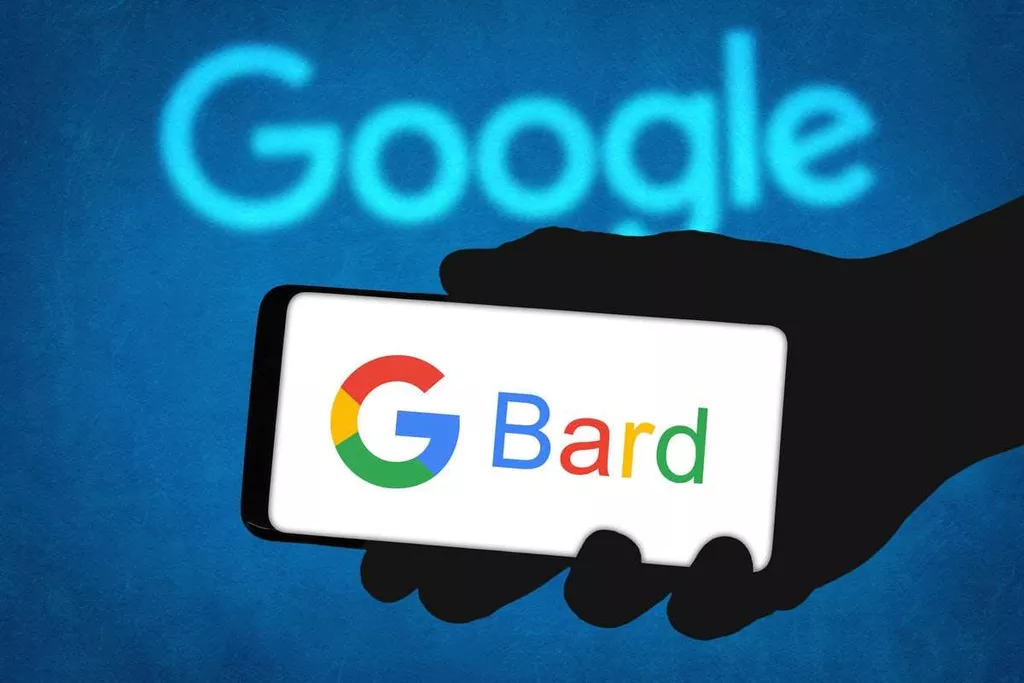
When a patient strikes up a conversation with a medical representative who may appear human but is an intelligent conversational machine. There are many areas where this technology has been used, such as payments, customer support, and marketing. Healthcare customer service chatbots can increase corporate productivity without adding any additional costs or staff. Chatbots allow users to communicate with them via text, microphones, and cameras. In order to evaluate a patient’s symptoms and assess their medical condition without having them visit a hospital, chatbots are currently being employed more and more. Developing NLP-based chatbots can help interpret a patient’s requests regardless of the variety of inputs.

For example, many patients now require extended at-home support and monitoring, whereas health care workers deal with an increased workload. Although clinicians’ knowledge base in the use of scientific evidence to guide decision-making has expanded, there are still many other facets to the quality of care that has yet to catch up. Key areas of focus are safety, effectiveness, timeliness, efficiency, equitability, and patient-centered care [20]. These categories are not exclusive, as chatbots may possess multiple characteristics, making the process more variable.
What is an example of using AI chatbots in healthcare?
Its algorithm has a function that recognizes spoken words and responds appropriately to them. Sensely processes the data and information when patients report their symptoms, analyzes their condition, and proposes a diagnosis. This free AI-enabled medical chatbot offers patients the most likely diagnoses based on evidence.

Patients who are not engaged in their healthcare are three times as likely to have unmet medical needs and twice as likely to delay medical care than more motivated patients. Maybe for that reason, omnichannel engagement pharma is gaining more traction now than ever before. An AI healthcare chatbot can also be used to collect and process co-payments to further streamline the process.
Healthcare Chatbots: 10 ways they’re shaking up the sector!
By providing immediate assistance, these chatbots can help people take action quickly, potentially saving lives. Mental health chatbots are a cool way for people to get support for their mental well-being. They ask about your mental health, offer resources and advice, or even hook you up with a mental health professional if needed.
- The AI-based health chatbot from Youper focuses on enhancing mental wellness.
- In the future, it will be one of the most crucial factors for future advancements.
- In combination with wearable technology and affordable software, chatbots have great potential to affect patient monitoring solutions.
- The nurses and administrators who find themselves bogged down with repetitive admin work can do more valuable things with the help of RPA, such as interacting with patients and staff.
- The healthcare chatbot market is predicted to reach $944.65 million by 2032 from $230.28 million in 2023.
- Secondly, placing too much trust in chatbots may potentially expose the user to data hacking.
In this blog post, we’ll explore the key benefits and use cases of healthcare chatbots and why healthcare companies should invest in chatbots right away. Nevertheless, although ChatGPT is currently still imperfect as a humanlike medical chatbot, we believe that it is bound to change healthcare systems in the near future. Below, we explore some obstacles to that goal and discuss potential solutions to each obstacle.
Exploring the potential of healthcare chatbots
The global Healthcare Chatbots market is segmented by component, deployment model, application, end user, and region. On the basis of component, the target market is segmented as software and services. By deployment model, the global Healthcare Chatbots market is bifurcated into on-premise model and cloud-based model. With regards to application, the target market is segmented into symptom checking & medication assistance and appointment scheduling & medical guidance. Based on end user, the target market is segmented into patients, insurance companies, healthcare providers, and other end users.

Among others, chatbots reduce physicians’ administrative workload and weaken the worse consequences coming along with the lack of physicians. To examine this field of research and its specific characteristics, we perform a qualitative study with 23 physicians from different fields having experience with automation in the healthcare sector. We identify seven application scenarios for chatbots from the physicians’ perspective and seven further application scenarios physicians assess as useful for patients. Nine of them enlarge and five of them validate the existing five application scenarios in literature. We contribute to research in the stream of chatbots by offering a combined perspective of physicians and patients.
Healthcare Chatbot: Improving Telemedicine & Enhancing Patient Communication
This can save you on staffing and admin overhead while still letting you provide the quality of care your patients expect. Whatever it is, patients can ask questions and get evidence-based answers metadialog.com back. You see there is no doubt that among all industries healthcare is one of the prominent industries that are undergoing rapid transformation due to advancements in technology every year.
What are the disadvantages of chatbots in healthcare?
- No Real Human Interaction.
- Limited Information.
- Security Concerns.
- Inaccurate Data.
- Reliance on Big Data and AI.
- Chatbot Overload.
- Lack of Trust.
- Misleading Medical Advice.
The main problem is that there’s no way for the human user to know whether or not a chatbot is right or wrong. They may appear to be infallible because they never admit when they make mistakes, but they can still give out incorrect information without realizing it. Chatbots are also excellent tools for patients who are uncomfortable with speaking with medical professionals because they can provide them with information without talking to anyone directly.
Chatbots’ Unique Benefits for Healthcare
These informed consent and independent review processes — while imperfect — are enormously important to protect the safety of vulnerable patient populations. AI-powered healthcare chatbots are conversational solutions that act as a bridge between patients, insurance companies, and healthcare institutions and help in enhancing patient experience and satisfaction. A study by Gartner reported that almost 75% of healthcare delivery organizations will have in some way or another invested in AI by late 2021. A chatbot in healthcare can be used to schedule appointments with doctors or other medical professionals. The chatbot will ask the patient a series of questions, such as the reason for the visit, and then use that information to schedule an appointment.
- Moreover, backup systems must be designed for failsafe operations, involving practices that make it more costly, and which may introduce unexpected problems.
- While ChatGPT has the potential, as a disruptive technology, to improve access to healthcare services, there are also concerns relating to its use as a medical chatbot.
- With each iteration, the chatbot gets trained more thoroughly and receives more autonomy in its actions.
- Chatbots are also becoming more common in hospitals, where they answer basic questions about medications and treatment options.
- Chatbots are designed to assist patients and avoid issues that may arise during normal business hours, such as waiting on hold for a long time or scheduling appointments that don’t fit into their busy schedules.
- ChatGPT is reputed to be serving various medical functions, ranging from uses in medical writing and documentation to medical education.
Using AI and natural language processing, chatbots can help your patients book an appointment or answer a question. Can a chatbot provide human-like care and satisfaction to patient questions is a concern for the patient and also the healthcare facilities and the stakeholder involved. There are countless opportunities to automate processes and provide real value in healthcare. Offloading simple use cases to chatbots can help healthcare providers focus on treating patients, increasing facetime, and substantially improving the patient experience. It does so efficiently, effectively, and economically by enabling and extending the hours of healthcare into the realm of virtual healthcare. There is a need and desire to advance America’s healthcare system post-pandemic.
Examples of AI Chatbots that are Changing Healthcare Experience
Conversational AI is a type of artificial intelligence that enables consumers to interact with computer applications the way they would with other humans. Conversational AI has primarily taken the form of advanced chatbots, or AI chatbots. Conversational AI allows robots to talk with chatbots using seamless bidirectional communication. With conversational AI, robots and humans are encouraged to interact using natural language to process service requests. This also means that RPA processes can be triggered directly from a chat, which in turn increases operational efficiency.

During the lockdown, the world faced problems and was presented with challenges that were unheard of. However, on-demand facilities such as requesting an ambulance, ordering medicines, or something else were made a lot easier through the chatbot healthcare app. Mental issues have been surmounting, and there is no way better to deal with them than intelligent software programs.
The Future of Chatbot Healthcare Apps in Healthcare Industry
In general, the healthcare industry offers a number of use cases for chatbots, whether providing patients with information, offering conversational support or delivering ideas for therapeutic solutions. Whereas early chatbots used pre-scripted dialogue and didn’t perform well when users deviated from that script, today’s chatbots are taking advantage of AI to improve their performance the more they are used. For doctors, chatbots prove to be beneficial as they can access the patient’s medical records in seconds. They are also able to check the prescriptions and the last check-up records immediately in the case of an emergency. Although chatbots are not able to replace doctors, they will reduce the workload by helping patients and delivering solutions to their issues. The healthcare sector has been trying to improve digital healthcare services to serve their valuable patients during a health crisis or epidemic.

Application cases range from automated appointments to improving access for patients with disabilities and more. The technology promises convenience for individuals but also provides opportunities for increased revenue streams through insurance billing practices and claims processing. Prescription refills is something that most patients get in touch with a doctor for, since the key to beating a disease is having access to medicines consistently. You can build a simple chatbot for your website that can fetch the patient details, cross check them with the visitors to the doctors at your hospital, and provide prescription refills. Customers do not want to invest time in filling out a feedback form, or they are simply not interested. Businesses have started resorting to chatbots to measure customer satisfaction.
Chatbots in Healthcare Market Growth Prospects, Key Vendors … – KaleidoScot
Chatbots in Healthcare Market Growth Prospects, Key Vendors ….
Posted: Tue, 06 Jun 2023 04:55:55 GMT [source]
Based on the information you submit, the chatbot can help you file the claim and get all the returns with ultimate ease. From noticing the claim status, managing the progress, and notifying everything else, one can do it all. New York-based, cancer-oriented company that aims at easing the life of those fighting against cancer. The app empowers cancer patients and survivors, offering them carefully curated content that includes every bit of information they need and useful lists of diets, exercises, and post-cancer practices. OneRemission also allows patients to contact an online oncologist 24/7 in case they need it. At that time, the chatbots will resolve the queries in just seconds, by enhancing customer experience and decreasing the team workload.
Patient Trust in AI Chatbots, ChatGPT Has Room to Grow – PatientEngagementHIT.com
Patient Trust in AI Chatbots, ChatGPT Has Room to Grow.
Posted: Tue, 23 May 2023 07:00:00 GMT [source]
What are the test cases for chatbot?
Chatbots can be tested via a number of techniques – using RPA, Security testing, UFT testing, and many more. Additionally, there are various tools like Botium useful for testing chatbots. For this piece, let's explore how to handle the chatbot using Selenium.




